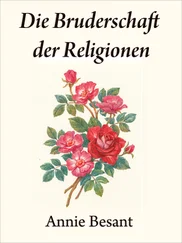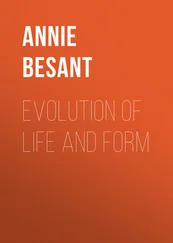Annie Besant - Avatâras
Здесь есть возможность читать онлайн «Annie Besant - Avatâras» — ознакомительный отрывок электронной книги совершенно бесплатно, а после прочтения отрывка купить полную версию. В некоторых случаях можно слушать аудио, скачать через торрент в формате fb2 и присутствует краткое содержание. Жанр: foreign_antique, foreign_prose, на английском языке. Описание произведения, (предисловие) а так же отзывы посетителей доступны на портале библиотеки ЛибКат.
- Название:Avatâras
- Автор:
- Жанр:
- Год:неизвестен
- ISBN:нет данных
- Рейтинг книги:4 / 5. Голосов: 1
-
Избранное:Добавить в избранное
- Отзывы:
-
Ваша оценка:
- 80
- 1
- 2
- 3
- 4
- 5
Avatâras: краткое содержание, описание и аннотация
Предлагаем к чтению аннотацию, описание, краткое содержание или предисловие (зависит от того, что написал сам автор книги «Avatâras»). Если вы не нашли необходимую информацию о книге — напишите в комментариях, мы постараемся отыскать её.
Avatâras — читать онлайн ознакомительный отрывок
Ниже представлен текст книги, разбитый по страницам. Система сохранения места последней прочитанной страницы, позволяет с удобством читать онлайн бесплатно книгу «Avatâras», без необходимости каждый раз заново искать на чём Вы остановились. Поставьте закладку, и сможете в любой момент перейти на страницу, на которой закончили чтение.
Интервал:
Закладка:
And so in other Avatâras, He limits Himself for men's sake. Take the great king, Shrî Râma. What did he come to show? The ideal Kshattriya, in every relation of the Kshattriya life; as son – perfect as son alike to loving father and to jealous and for the time unkind step-mother. For you may remember that when the father's wife who was not His own mother bade him go forth to the forest on the very eve of His coronation as heir, His gentle answer was: "Mother, I go." Perfect as son. Perfect as husband; if He had not limited Himself by His own will to show out what husband should be to wife, how could He in the forest, when Sîtâ had been reft away by Râvana, have shown the grief, have uttered the piteous lamentations, which have drawn tears from thousands of eyes, as He calls on plants and on trees, on animals and birds, on Gods and men, to tell Him where His wife, His other self, the life of His life, had gone? How could he have taught men what wife should be to husband's heart unless He had limited Himself? The consciously Omnipresent Deity could not seek and search for His beloved who had disappeared. And then as king; as perfect king as He was perfect son and husband. When the welfare of His subjects was concerned, when the safety of the realm was to be thought of, when He remembered that He as king stood for God and must be perfect in the eyes of His subjects, so that they might give the obedience and the loyalty, which men can only give to one whom they know as greater than themselves, then even His wife was put aside; then the test of the fire for Sîtâ, the unsullied and the suffering; then She must pass through it to show that no sin or pollution had come upon Her by the foul touch of Râvana, the Râkshasa; then the demand that ere husband's heart that had been riven might again clasp the wife, She must come forth pure as woman; and all this, because He was king as well as husband, and on the throne the people honoured as divine there must only be purity, spotless as driven snow. Those limitations were needed in order that a perfect example might be given to man, and man might learn to climb by reproducing virtues, made small in order that his small grasp might hold them.
We come to the second great class of manifestations, that to which I alluded in the beginning as covered by the wide term A´vesha. In that case it is not that a man in past universes has climbed upward and has become one with I´shvara; but it is that a man has climbed so far as to become so great, so perfect in his manhood, and so full of love and devotion to God and man, that God is able to permeate him with a portion of His own influence, His own power, His own knowledge, and send him forth into the world as a superhuman manifestation of Himself. The individual Ego remains; that is the great distinction. The man is there, though the power that is acting is the manifested God. Therefore the manifestation will be coloured by the special characteristics of the one over whom this overshadowing is made; and you will be able to trace in the thoughts of this inspired teacher, the characteristics of the race, of the individual, of the form of knowledge which belongs to that man in the incarnation in which the great overshadowing takes place. That is the fundamental difference.
But here we find that we come at once to endless grades, endless varieties, and down the ladder of lesser and lesser evolution we may tread, step by step, until we come to the lower grades that we call inspiration. In a case of A´vesha it generally continues through a great portion of the life, the latter portion, as a rule, and it is comparatively seldom withdrawn. Inspiration, as generally understood, is a more partial thing, more temporary. Divine power comes down, illuminates and irradiates the man for the moment, and he speaks for the time with authority, with knowledge, which in his normal state he will be unable probably to compass. Such are the prophets who have illuminated the world age after age; such were in ancient days the Brâhmaṇas who were the mouth of God. Then truly the distinction was not that I spoke of between priest and prophet; both were joined in the one illumination, and the teaching of the priest and the preaching of the prophet ran on the same lines and gave forth the same great truths. But in later times the distinction arose by the failure of the priesthood, when the priest turned aside for money, for fame, for power, for all the things with which only younger souls ought to concern themselves – human toys with which human babies play, and do wisely in so playing, for they grow by them. Then the priests became formal, the prophets became more and more rare, until the great fact of inspiration was thrown back wholly into the past, as though God or man had altered, man no longer divine in his nature, God no longer willing to speak words in the ears of men. But inspiration is a fact in all its stages; and it goes far farther than some of you may think. The inspiration of the prophets, spiritually mighty and convincing, is needed, and they come to the world to give a new impulse to spiritual truth. But there is a general inspiration that any one may share who strives to show out the divine life from which no son of man is excluded, for every son of man is son of God. Have you ever been drawn away for a moment into higher, more peaceful realms, when you have come across something of beauty, of art, of the wonders of science, of the grandeur of philosophy? Have you for a time lost sight of the pettinesses of earth, of trivial troubles, of small worries and annoyances, and felt yourself lifted into a calmer region, into a light that is not the light of common earth? Have you ever stood before some wondrous picture wherein the palette of the painter has been taxed to light the canvas with all the hues of beauteous colour that art can give to human sight? Or have you seen in some wondrous sculpture, the gracious living curves that the chisel has freed from the roughness of the marble? Or have you listened while the diviner spell of music has lifted you, step by step, till you seem to hear the Gandharvas singing and almost the divine flute is being played and echoing in the lower world? Or have you stood on the mountain peak with the snows around you, and felt the grandeur of the unmoving nature that shows out God as well as the human spirit? Ah, if you have known any of these peaceful spots in life's desert, then you know how all-pervading is inspiration; how wondrous the beauty and the power of God shown forth in man and in the world; then you know, if you never knew it before, the truth of that great proclamation of Shrî Kṛiṣhṇa the Beloved: "Whatever is royal, good, beautiful, and mighty, understand thou that to go forth from My Splendour"; 3 3 Bhagavad-Gîtâ , x. 41.
all is the reflection of that tejas 4 4 Splendour, radiance.
which is His and His alone. For as there is nought in the universe without His love and life, so there is no beauty that is not His beauty, that is not a ray of the illimitable splendour, one little beam from the unfailing source of life.
Second Lecture
Brothers: – You will remember that yesterday, in dividing the subject under different heads, I put down certain questions which we would take in order. We dealt yesterday with the question: "What is an Avatâra?" The second question that we are to try to answer, "What is the source of Avatâras?" is a question that leads us deep into the mysteries of the kosmos, and needs at least an outline of kosmic growth and evolution in order to give an intelligible answer. I hope to-day to be able also to deal with the succeeding question, "How does the need for Avatâras arise?" This will leave us for to-morrow the subject of the special Avatâras, and I shall endeavour, if possible, during to-morrow's discourse, to touch on nine of the Avatâras out of the ten recognised as standing out from all other manifestations of the Supreme. Then, if I am able to accomplish that task, we shall still have one morning left, and that I propose to give entirely to the study of the greatest of the Avatâras, the Lord Shrî Kṛiṣhṇa Himself, endeavouring, if possible, to mark out the great characteristics of His life and His work, and, it may be, to meet and answer some of the objections of the ignorant which, especially in these later days, have been levelled against Him by those who understand nothing of His nature, nothing of the mighty work He came to accomplish in the world.
Читать дальшеИнтервал:
Закладка:
Похожие книги на «Avatâras»
Представляем Вашему вниманию похожие книги на «Avatâras» списком для выбора. Мы отобрали схожую по названию и смыслу литературу в надежде предоставить читателям больше вариантов отыскать новые, интересные, ещё непрочитанные произведения.
Обсуждение, отзывы о книге «Avatâras» и просто собственные мнения читателей. Оставьте ваши комментарии, напишите, что Вы думаете о произведении, его смысле или главных героях. Укажите что конкретно понравилось, а что нет, и почему Вы так считаете.











